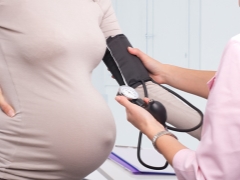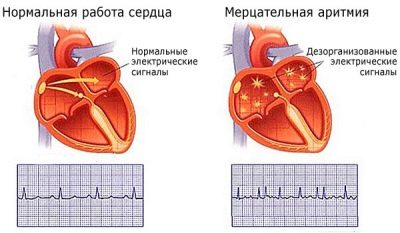Late pregnancy pressure
Blood flow indicators are very important when carrying a baby. Through the blood, the baby in the maternal tummy receives all the components it needs to grow. Changes in blood pressure in late pregnancy can be very dangerous.
Features in this period
Blood pressure (BP) should be monitored throughout pregnancy. The importance of measuring this indicator of blood flow in the late stages of carrying a baby cannot be overestimated. A change in blood pressure may indicate various pathologies in both the expectant mother and her baby.
Quite often, blood pressure indicators change during pregnancy. This change is largely due to changing hormones.
The specific hormones of pregnancy have a pronounced effect on the systemic circulation. Changes in the lumen of blood vessels under the influence of various hormones lead to an increase or decrease in blood pressure.
Norms
In the later stages of pregnancy it is very important to monitor the blood pressure of the expectant mother. She can do this on her own or when she goes to a doctor.
It is better if such measurements are carried out regularly. It is especially important to follow this recommendation to expectant mothers who have problems with blood pressure. Women who are at high risk should also not avoid this simple and routine procedure.
Experts identify several types of blood pressure:
- The first one they call "Top" or systolic. It is determined when the first heartbeat appears when measuring blood pressure using a tonometer. In pregnant women, the systolic pressure should not exceed 140 mm. Hg Art. His fall is below 100 mm. Hg Art. It is also an unfavorable sign that requires medical attention.
- The second type of blood pressure is called diastolic or "lower". Its value corresponds to the last audible heart beat when measuring blood pressure with a tonometer. Increase of this indicator is higher than 100 mm. Hg Art. - an unfavorable sign that requires mandatory consultation with a doctor. It is also necessary to consult a doctor if the diastolic pressure has dropped below 60 mm. Hg Art.
The most optimal pressure that occurs in most women in late pregnancy is 130 to 80 mm. Hg Art. These figures are not a manifestation of pathology and indicate a normal level of blood flow.
Reasons for change
The stronger the health of the future mother before the pregnancy, the lower the risk of developing various pathologies. Quite a lot of various chronic diseases of internal organs contribute to changes in blood pressure.
In the last stages of pregnancy, pathologies that occur both in the maternal organism and on the part of the fetus can lead to jumps in blood pressure. The severity of functional impairment depends largely on how severe a disease is.
According to statistics, an increase in blood pressure is most common in women over 40 years of age. This leads to age-related changes in the tone and diameter of blood vessels.
If a pregnant woman in the family has someone with close relatives who has hypertension or myocardial infarction, then the risk of developing a persistent increase in blood pressure increases several times.
Diseases of the cardiovascular system can also lead to frequent jumps in blood pressure in late pregnancy. Future mothers with arrhythmias or other irregular heartbeats should additionally visit a cardiologist when they are carrying a baby.
If, before pregnancy, they used any medications of the cardiac spectrum, after conception it is necessary to discuss with the doctor the possibility of their further admission. In such a situation, it may be necessary to cancel some medicines and to select new drugs that do not adversely affect the developing fetus.
Future mothers who are obese or have a pronounced excess body weight are also at risk for developing a persistent increase in blood pressure. It must be remembered that during pregnancy, the load on the female body increases many times.
An increase in the baby’s body weight already leads to changes in peripheral blood flow. If a woman's body weight significantly exceeds normal values due to obesity, this will inevitably lead to the fact that when measuring blood pressure she will get high rates.
Kidney and urinary tract diseases are common causes of hypertension. It is important to note that Some of these pathologies are not accompanied by an increase, but a decrease in blood pressure.
Violation of urine outflow leads to a change in the volume of circulating blood in the body. In the end, the resulting functional impairment and manifest a change in the numbers of blood pressure. Quite often, pathology occurs at 35-38 weeks of pregnancy.
Neurological diseases that occurred even before the conception of a baby can also have an adverse effect on blood pressure indicators. Various traumatic brain injuries, previously suffered meningitis or meningoencephalitis lead to a permanent change in this indicator of blood flow. In this situation, the expectant mother should definitely seem a neurologist. This specialist will select the necessary therapy and offer her a number of necessary recommendations.
There are a number of specific pathologies that are found only in pregnant women. One of them is preeclampsia.
This pathology can be very dangerous for both the mother and her baby. It is accompanied by the development of persistent changes in blood pressure, as well as the appearance of protein in the urinary sediment. The general condition of the future mother with this pathology is significantly impaired.
How is it determined?
Persistent abnormalities are accompanied by the appearance of adverse symptoms. So, with an increase in blood pressure, a woman has a headache. The nature of the pain syndrome can be increasing and arching.
The pain spreads all over the head. Usually, epicenter of the pain syndrome - on the back of the head. Many women feel a strong pulsation in the temples.
Dizziness is another frequent symptom that manifests itself in blood pressure disorders. This clinical symptom manifests itself mainly when changing the position of the body. For many women, dizziness becomes very strong. The severity of the condition can be exacerbated by the appearance of "flies" before his eyes.
Expectant mothers with blood pressure problems begin to experience fatigue. Even after performing the usual daily procedures, they get tired very quickly. To improve overall health in this case, they need to rest more often. Quite often, this symptom appears already in the last weeks of pregnancy.
A frequent complaint that general practitioners from pregnant women hear at a doctor’s appointment is general weakness. This is a completely normal symptom occurring at 37-39 weeks of pregnancy. In some cases, it manifests itself much earlier - by 30-32 weeks.
Future mothers who have twins or triplets may get tired a little more. However, in pregnant women who have problems with blood pressure, general weakness can be very pronounced.
This unfavorable symptom leads to the fact that the future mom is more often forced to rest. Some women increased daytime sleepiness. Night sleep is the opposite violated. Often, future mothers suffering from blood pressure drops complain persistent insomnia and having restless frightening dreams.
How is the treatment carried out?
The choice of therapy will depend on a variety of baselines. To normalize the level of blood pressure, doctors will recommend the expectant mother to closely monitor the regime of the day. Full sleep, rational nutrition and limiting psycho-emotional stress are important factors in the treatment of any vascular disorders.
Women suffering from persistent and pronounced increase in blood pressure, doctors will recommend to limit significant physical exertion. Especially under the ban weight lifting.
In late pregnancy the future mother should carefully plan and observe her daily routine.. Walking in the fresh air will have a positive effect not only on the mother's body, but will also be very useful for her baby.
If a woman has any dangerous pathology that could be a threat to her life or her baby, she will be hospitalized in the hospital. She will be provided with all necessary treatment at a medical facility.
In some situations, the expectant mother is in the hospital right up to the birth. However, this option is possible with really severe pathology, which requires daily medical supervision.
It is very important to monitor the blood pressure indicators from the 36th week of pregnancy and up to the birth. At this time, the preparation of the female body for the upcoming birth of the baby. Any deviation from the norm of AD requires the obligatory treatment to the doctor for consultation.
Further we recommend to listen to the obstetrician-gynecologist, who will tell all about the increased pressure during pregnancy.





















